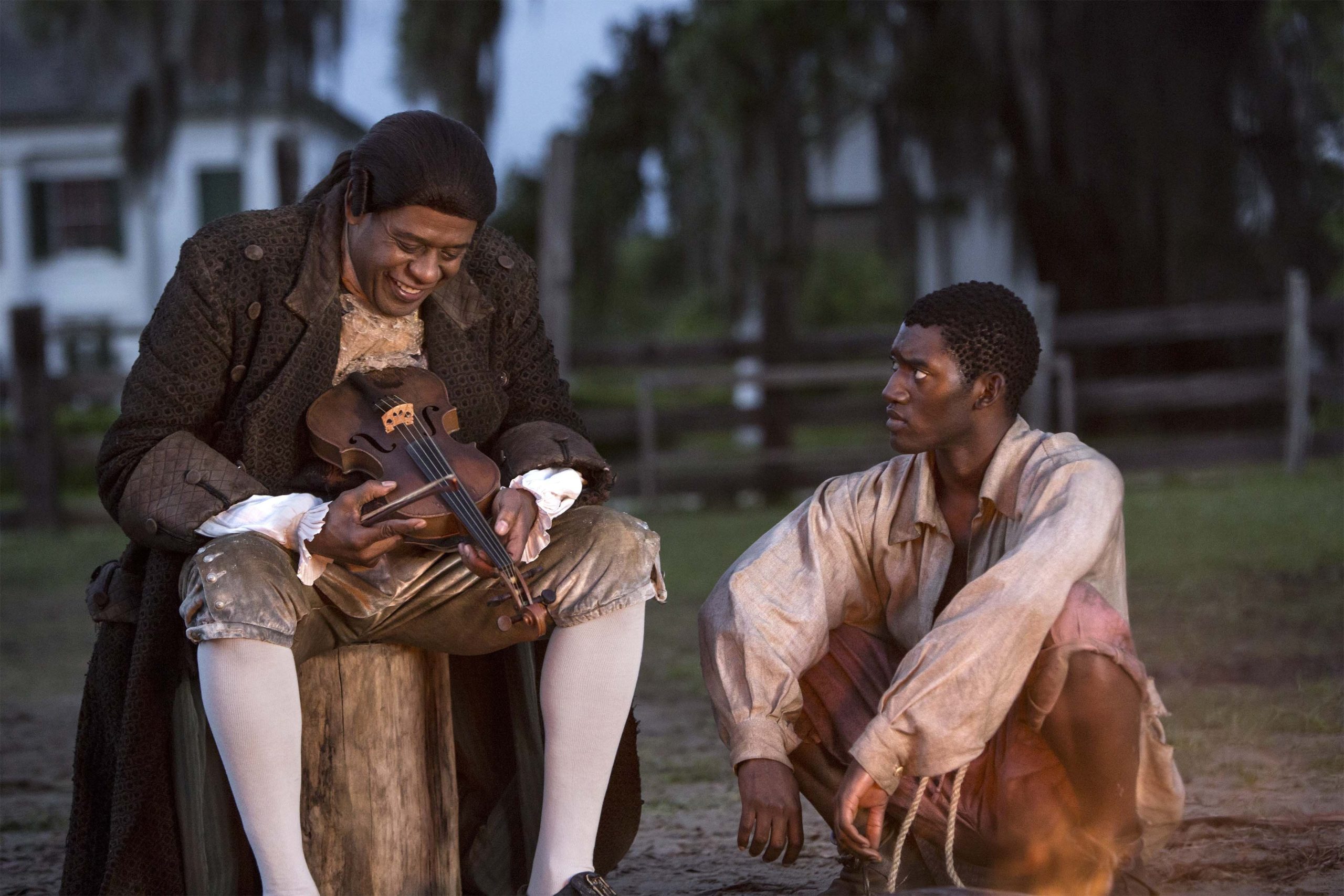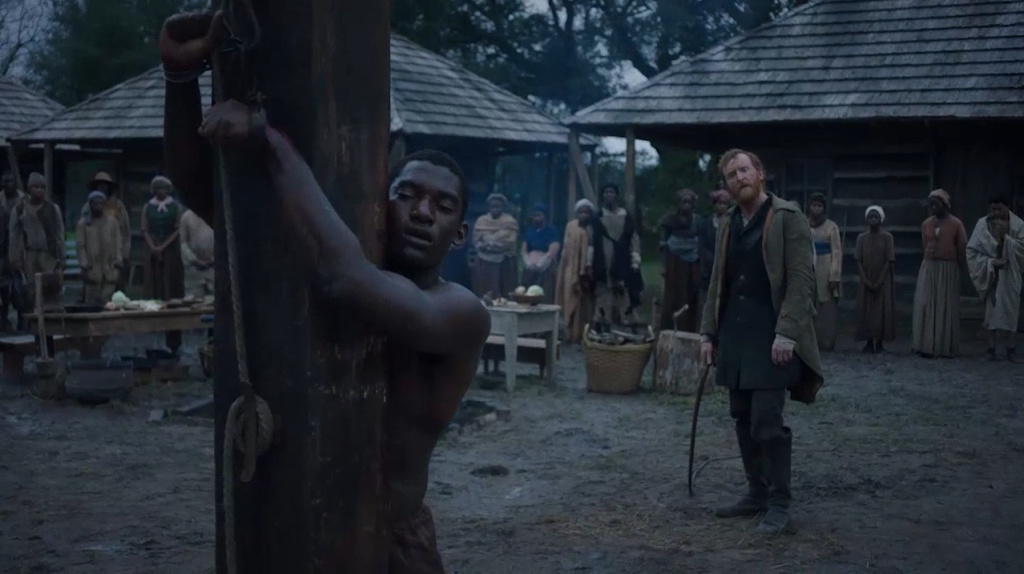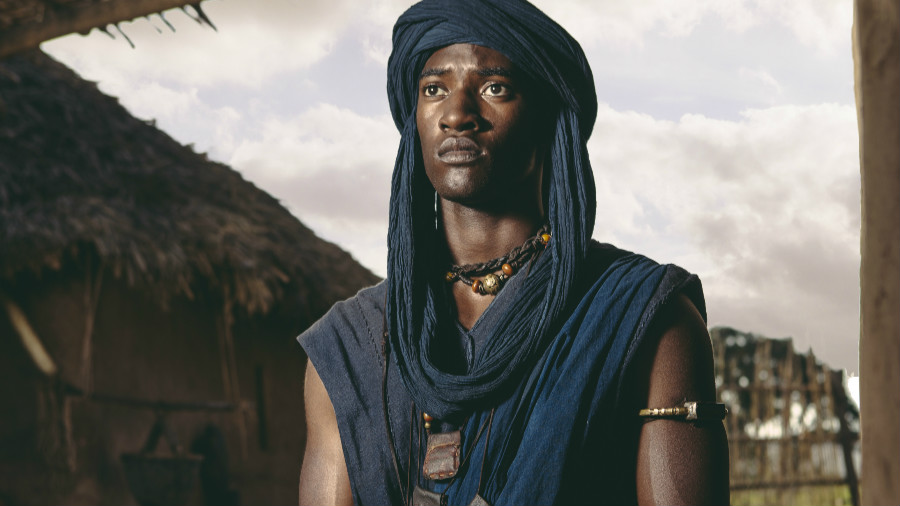
This one comes to us from Heather Strong Moore.
“You can’t buy a slave, you’ve got to make a slave.” So says Kunta Kinte’s slave overseer prior to a vicious whipping. This line summarizes much of the struggle depicted in Roots (based on the 1976 novel by Alex Haley and 1977 original miniseries), a new miniseries which follows the Kinte family from West Africa in the mid-1700s through the end of the Civil War in the United States. It follows their fight to remember where this family came from in the face of the horrors of slavery and this vile institution that desired to take everything from them.
The goal of slavery is to rob a person and a people of who they are. To make them forget their identity, to strip away family ties, to stamp out any memories and relationships that could give one strength and purpose. To extinguish the spark of humanity and replace it with numbness, despair and faceless productivity.
Kunta (played powerfully by Malachi Kirby) remains determined to hope for freedom and to keep his family name and story alive. He diligently teaches his daughter Kizzy the names of her grandparents and the place where he grew up as part of the Mandinka tribe. He passes on the tradition of naming their children under the stars of heaven, proclaiming that their name is their shield. The story fades a little with each generation, but the name continues to ring across the decades of persecution and oppression.
One of the reasons why the miniseries originally struck such a nerve is because slave owners were very successful in suppressing the history and family lineage of African-Americans. It was a common practice to split up families, to severely punish slaves who learned how to read and write, to take every measure to erase the family trees of slaves.
But we all have a deep longing to know our stories, to know where we came from and why we are in the world. Roots gave a glimpse into what that might look like for many African-Americans. To see what it took to remember one’s name and to survive with incredible strength in the face of deep evil and cruelty.
Roots isn’t the only origin story of an enslaved people. The first five books of the Bible (in Hebrew “Torah” or “Law”) are written to a newly freed people who have lost touch with their story and their cultural identity. Moses is widely held to be the primary author of these books, though others may have contributed as well, and he is writing to a people that have been slaves to the Egyptians for over 400 years. They had an oral history but no written account of what it meant to be a Hebrew and who their ancestors Abraham, Isaac and Jacob really were.
The Egyptians were harsh slave owners who treated them “ruthlessly” (Ex 1:14), so they knew about Egyptian culture and gods but little about Yahweh. So Moses started telling them their story. In the beginning, God created the heavens and the Earth…This is who we are, he explains; our God is so powerful that He created something out of nothing, and made it very good. And He made us in His image, men and women with great value.
And then Moses gives them plenty of genealogies as the story continues. Names that are hard for modern readers to pronounce and which we often skip, but which would have been treasures to the enslaved Hebrews. They may have turned to each other and marveled, “Our God knows our names! He has a record of each of our people and kept close track of our history. He called our ancestors by name and made promises to them. And now he has heard our cries and kept a record of them too (Ex 3:7-10), and He rescued us. Yahweh hasn’t forgotten us; He remembers everything.” When it seemed like they had lost everything after centuries of slavery, they found out that they served a God who watched them closely. Now He was calling them by name and leading them into freedom and His protection. When their oppressors told them they were expendable, their God told them they carried a glorious Image within them.
God chose an enslaved people who were an ethnic minority to be the bearers of His redemptive story in history. The Bible was written by oppressed people for people suffering under physical and spiritual slavery. This was personified by the Israelites and has played out for all of humanity ever since.
I think it’s miraculous that despite heretical misuses of scripture to perpetuate slavery, so many African-Americans still managed to encounter the love of Jesus Christ and a deep hope and faith. I praise God for the Holy Spirit’s ability to transcend evil and suffering, to propel beautiful truth through terrible lies. We are loved by a God whose light shines so brightly that no darkness can overcome it (Jn 1:5).
The realities depicted in Roots are gut-wrenching, and I hated so much of what I saw. It forced me to grieve and repent over the ways that America still falls short of full restoration and equality. It forced me to realize that there are moments–moments that I may not even know about–in which I am an Egyptian, and I tremble over God’s judgment. And yet I was filled with gratitude to remember that no child of the Living God can ever truly be lost. Every person that God has created is endowed with eternal value that no other human can ever erase.
Are not five sparrows sold for two pennies? Yet not one of them is forgotten by God. Indeed, the very hairs of your head are all numbered. Don’t be afraid; you are worth more than many sparrows (Lk 12:6).

COMMENTS
One response to “Finding Our Roots: The Miniseries and the Exodus”
Leave a Reply
















Really love this Heather. My wife and I DVR’d and watched this in full. If nothing else, it is must see – TV storytelling at it’s pinnacle. The direction from guys like Mario Van Peeples (and production credits to the likes of Quest Love, and Lavar Burton, who has a bit, where’s Waldo- part) is spot on.
You’re insistence on passing on narrative, and story, and family curses and family triumphs (centered in human suffering) is so cross-generational, cross-gender, cross-race, cross-everything……..dare I say Trinitarian – it’s all part of one big dance for eternity. Rock On Heather!